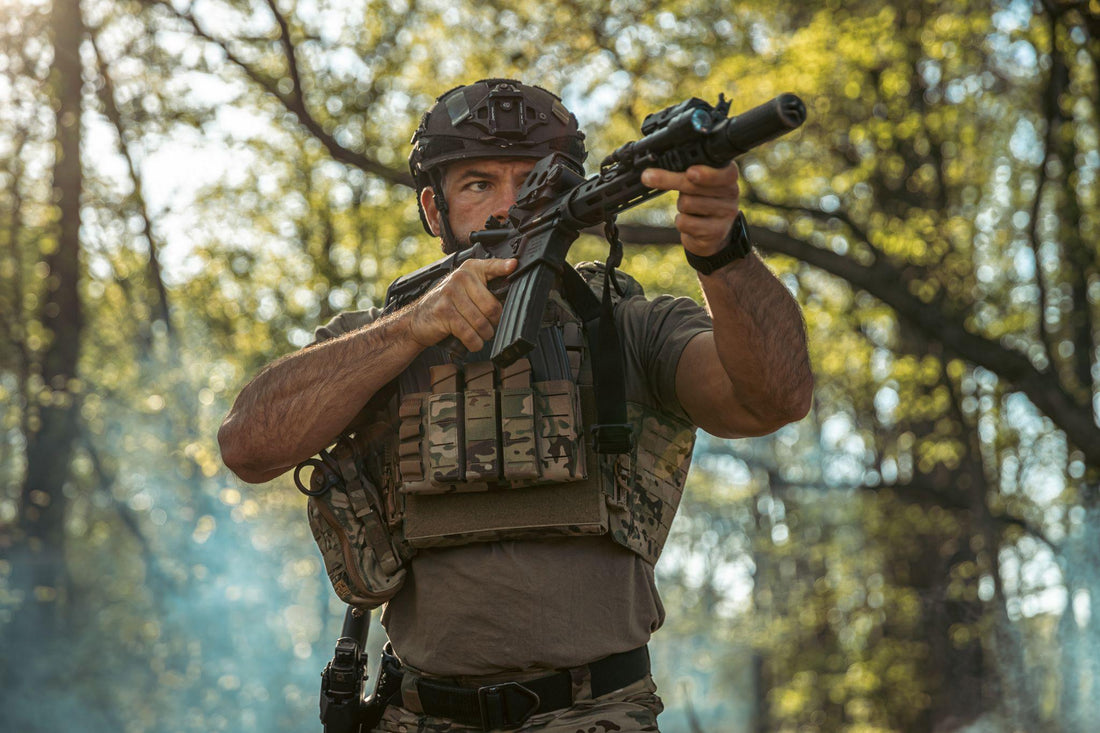In a world where threats evolve daily—civil unrest, terrorism, rogue regimes—some warriors are trained not just to respond, but to dominate. These are the elite. The modern-day Spartans. The special operations units that strike fear into enemies and pride into the hearts of nations.
This ranking isn’t about politics—it’s about respect. We’re talking about the hardest training, the most daring missions, and the men and women who live by a simple code: stand between danger and the innocent.
Let’s break down the most feared, most respected, and most prestigious special forces in the world today.
What Makes a Special Forces Unit ‘Elite’?
Not all military units are created equal. What separates the elite from the ordinary?
- Brutal selection processes that only the strongest survive
- Combat experience in unconventional warfare and black ops
- Specialized skills like combat diving, intelligence gathering, and sabotage
- A legacy of success in counter-terrorism hostage rescue operations
- A global reputation as the ultimate force units in the field
These aren’t just soldiers. They’re defenders. Protectors. Fearless modern heroes.

Ranked: The Baddest Special Forces in the World
Every unit on this list is elite, battle-proven, and deeply respected. These rankings are based on public recognition, mission history, and global influence—not personal worth. No matter the position, each force here represents the highest standard of fearlessness and skill.
1. Navy SEALs – United States
These warriors dominate across sea, air, and land. Known for precision raids, high-profile captures, and daring rescues, the SEALs are the tip of America’s military spear.
Why they rank: Their unmatched versatility, combat-proven experience, and grueling training pipeline make them one of the most capable special operations units in existence.
2. SAS (Special Air Service) – United Kingdom
The British SAS set the global standard for special operations forces. With the motto “Who Dares Wins,” their legacy includes decades of black ops, counter-terrorism, and hostage rescues.
Why they rank: They earned global respect as one of the most efficient and battle-hardened special forces units ever formed, serving as the model for many that followed.
3. Delta Force – United States
Officially known as 1st Special Forces Operational Detachment-Delta, Delta Force is America’s most elite counter-terrorism and hostage rescue unit. Their missions are top secret—and always successful.
Why they rank: With elite skills in intelligence gathering, assault, and surgical strike capabilities, they’re the most feared shadow warriors in the world.
4. Sayeret Matkal – Israel
This elite Israeli unit handles deep reconnaissance and covert missions well beyond enemy lines. Known for bold hostage rescues and intelligence operations, they operate in total silence.
Why they rank: With elite intelligence gathering skills and precision execution, their operational track record rivals the best in the world.
5. JTF2 (Joint Task Force 2) – Canada
Canada’s special forces unit may keep a low profile, but insiders know JTF2 is among the best. Their missions—often partnered with SEALs or Delta—require elite stealth and strategic skill.
Why they rank: Their discretion, high-level cooperation with allied forces, and zero-failure record put them among the top-tier global operators.
6. GIGN – France
The Groupe d’Intervention de la Gendarmerie Nationale is France’s elite police and counter-terror unit. They specialize in complex hostage rescue and high-risk raids.
Why they rank: Their speed, precision, and surgical application of force make them legends in counter-terror response.
7. Kommando Spezialkräfte (KSK) – Germany
Germany’s special operations forces, the KSK, train relentlessly for missions requiring stealth, speed, and strategy. They operate in tandem with NATO and are known for zero hesitation.
Why they rank: With advanced training in rigorous training environments and a strict no-fail mission ethos, the KSK represents Germany’s finest.
8. NSG “Black Cats” – India
Formed to respond to terror threats, India’s National Security Guard excels in urban warfare, high-profile counter-terrorism, and hostage rescue under pressure.
Why they rank: Their quick-strike capability and battlefield composure under urban chaos make them indispensable for India’s national defense.
9. BOPE – Brazil
BOPE is the elite arm of Brazil’s military police, trained for the dangerous favelas of Rio. These operators are known for ruthless tactics and no-nonsense raids.
Why they rank: As masters of close-quarters combat and urban suppression, they’ve built a reputation as some of the toughest street fighters in the world.
What They All Share: Fearlessness
From the Green Berets to Delta Force, from the Special Boat Service to Sayeret Matkal, every elite unit was forged in fire. They don’t flinch. They don’t fail. They face what others run from. And they live the values RTS Tactical was built to support.
We create gear for the protector—the modern hero who steps forward when things get dangerous. In uniform or standing guard at home, you deserve the same elite protection trusted by the world’s best.

Gear That Serves the Mission
RTS Tactical is proud to be trusted by the U.S. Army, Navy, Marines, Air Force, law enforcement agencies, and individual protectors worldwide. Every product we manufacture is American-made, battle-tested, and built to perform under real-world pressure.
On the front lines, patrolling city streets, or preparing to defend your home—you need gear that doesn’t cut corners. You need gear that delivers when it matters most.
- Body Armor – NIJ-certified, high-performance protection for today’s threats
- Ballistic Shields – Lightweight, mobile defense for high-risk encounters
- IFAKs (Individual First Aid Kits) – Critical medical gear when seconds count
Fearlessness is the standard. If you're ready to protect what matters most, it's time to gear up with the tools trusted by those who lead from the front.
Be fearless. Be ready. RTS Tactical has your six.

